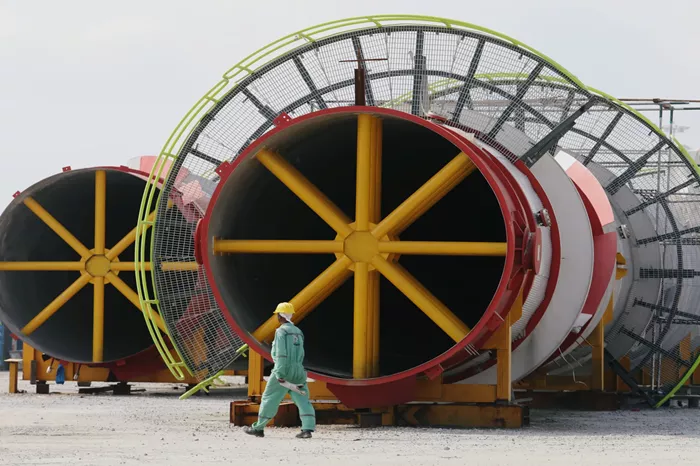The Dangote Refinery, a $20 billion petrochemical giant in Nigeria, has successfully positioned itself as a critical player in the global energy market, exporting jet fuel to international destinations, including Iceland, Tenerife, and London’s Heathrow Airport. This milestone marks a transformative chapter for Nigeria’s energy sector, as the refinery accelerates production and redefines the nation’s role in global energy trade.
Expanding Global Exports
A report by SP Global Commodity Insights reveals that the Dangote Refinery’s aviation fuel, produced in Nigeria, has reached high-profile locations worldwide. Between January and October 2024, most of its exports were routed through the Lome transshipment hub off Togo, establishing a robust logistical network.
South Korea has emerged as the refinery’s most prominent export destination for naphtha, importing approximately 23,000 barrels per day (b/d). Additionally, significant quantities of gasoil have been shipped to Ghana and neighboring West African nations, signaling the refinery’s strategic focus on regional energy needs.
SP Global estimates that eight African countries are preparing to import Dangote Refinery products as the facility gears up to achieve full operational capacity next year. This development positions Nigeria as a net exporter of jet fuel, naphtha, and fuel oil, reversing decades of dependence on imports.
Projections for Gasoil and Petrol
Forecasts by Commodity Insights suggest that Nigeria’s gasoil exports could surpass imports by nearly 50,000 b/d from Lagos as early as next year. By 2026, these volumes are expected to triple, reflecting the refinery’s growing dominance in global energy markets.
While the refinery’s mission has primarily been to reduce Nigeria’s reliance on imported fuels, it is increasingly exploring petrol exports. Previously, Nigeria’s state oil firm, the Nigerian National Petroleum Corporation (NNPC), relied heavily on imports to meet the nation’s petrol demand of 350,000 b/d. However, with the removal of fuel subsidies in May 2023, domestic petrol imports fell by over 40% year-on-year, partially due to reduced smuggling.
Dangote Refinery is now ramping up its petrol production, projected at 50,000 b/d as its Residue Fluid Catalytic Cracking (RFCC) unit comes online. Concurrently, the refinery has committed to exporting 200,000 metric tons of petrol, a move analysts warn could heighten domestic political tensions and place additional pressure on global refining margins.
Domestic Impacts and Rising Standards
The refinery’s operations are already reshaping the domestic fuel market. Improved fuel quality from Dangote has prompted Nigerian regulators to restrict access to cheaper but lower-quality imports. This shift has increased fuel prices, ending years of government-backed consumer subsidies.
Reports that Nigeria’s jet fuel imports have plummeted, dropping from 13,000 b/d in 2023 to just 5,000 b/d in 2024. Dangote jet fuel now supplies nearly two-thirds of Nigeria’s market and almost half of West Africa’s aviation fuel consumption, significantly reducing dependency on imports.
Foluso Sobanjo, Managing Director of Asharami Synergy, confirmed the refinery’s impact in an interview: “We’re already buying from Dangote [now]; it’s slightly cheaper or at least the same price as imports.”
Economic Challenges and Global Implications
The Nigerian government and NNPC face mounting challenges managing import costs, which reached $6 billion in debt prior to subsidy removal. As Dangote continues to scale exports, the global refining landscape may also feel the ripple effects. Commodity Insights forecasts that petrol margins in Northwest Europe could decline sharply—from over $20 per barrel in early 2024 to $7 per barrel by the first quarter of 2025—due to increased competition from Dangote’s high-quality products.
A New Era for Nigeria’s Energy Sector
The Dangote Refinery’s rapid expansion underscores Nigeria’s potential to become a significant player in global energy exports. By leveraging its state-of-the-art facility to produce and export jet fuel, gasoil, and petrol, the refinery is reducing the nation’s dependence on imports, enhancing regional energy stability, and reshaping market dynamics on a global scale.
With full operational capacity on the horizon, the Dangote Refinery is set to further solidify its role as a cornerstone of Nigeria’s economic transformation, aligning the country with the demands of a rapidly evolving global energy market.
Related topic:
Jet Fuel Vs Diesel: What Is The Difference?

